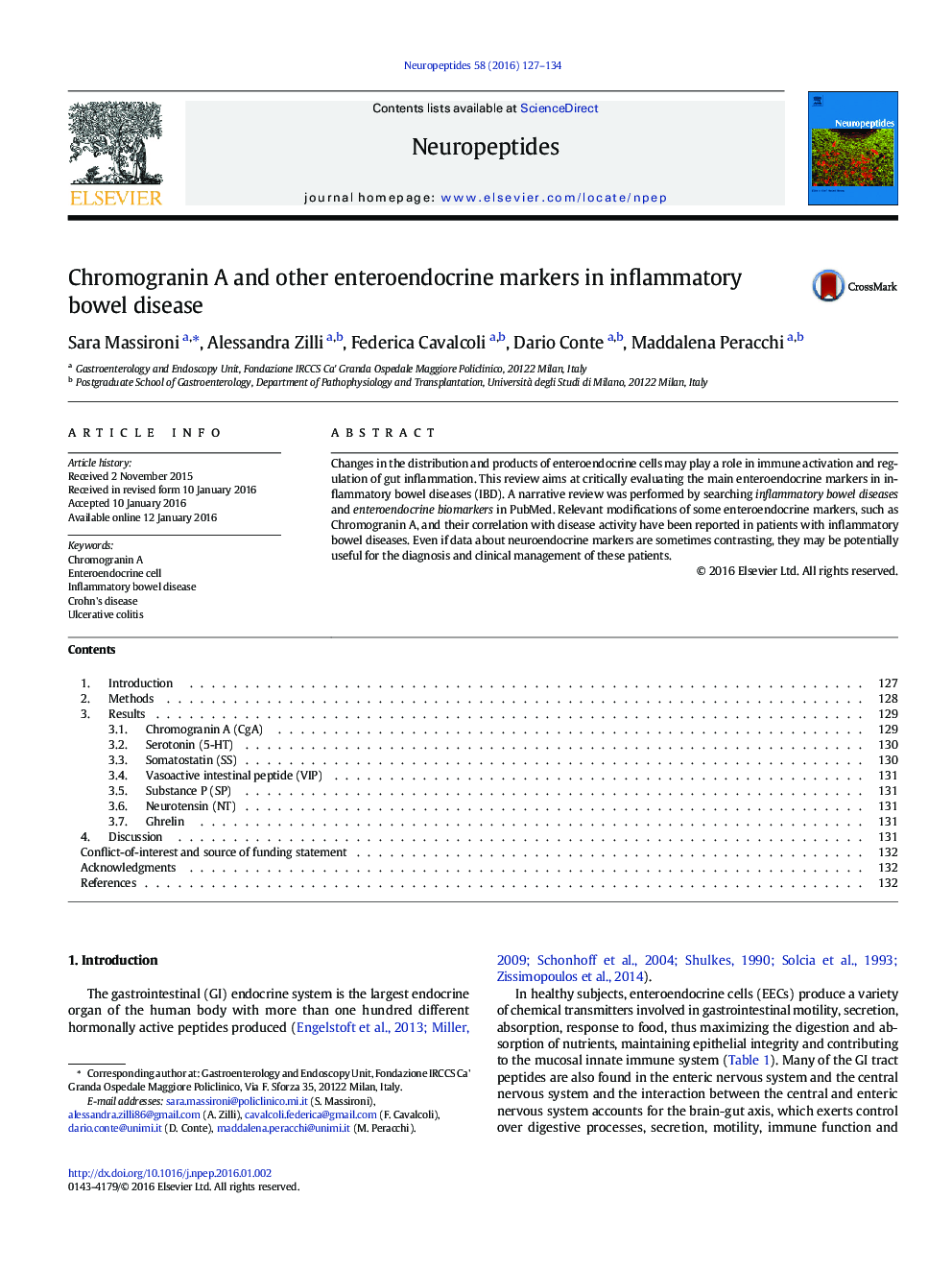| Article ID | Journal | Published Year | Pages | File Type |
|---|---|---|---|---|
| 5904075 | Neuropeptides | 2016 | 8 Pages |
â¢Enteroendocrine cell-derived peptides may control gastrointestinal inflammation.â¢Inflammatory processes may influence the neuroendocrine system by producing neuropeptides.â¢Raised CgA levels have been noted in 30% of IBD patients, mainly with active disease.â¢Changes in colonic production of other neuropeptides have been noted in IBD patients.â¢Enteroendocrine cells could become a novel therapeutic target for IBD patients.
Changes in the distribution and products of enteroendocrine cells may play a role in immune activation and regulation of gut inflammation. This review aims at critically evaluating the main enteroendocrine markers in inflammatory bowel diseases (IBD). A narrative review was performed by searching inflammatory bowel diseases and enteroendocrine biomarkers in PubMed. Relevant modifications of some enteroendocrine markers, such as Chromogranin A, and their correlation with disease activity have been reported in patients with inflammatory bowel diseases. Even if data about neuroendocrine markers are sometimes contrasting, they may be potentially useful for the diagnosis and clinical management of these patients.
